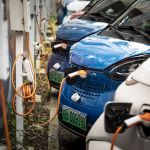With less than 40 days to go before what has been described by some delegates and scientists as the “climate finance COP” in Glasgow, a new study shows that developed nations are falling far short of their climate finance obligations.
Only three of the world’s developed countries are meeting their climate finance obligations according to the study by the independent think tank, Overseas Development Institute (ODI). Another study by Oxfam found that developed countries’ pledges to provide $100-billion of annual financing, made over a decade ago and seen as key to unlocking upcoming climate talks, are unlikely to be met even five years behind target.
The studies come as a recent report by Bloomberg noted that officials from the US, UK, France and Germany are looking for an agreement with Eskom. Eskom confirmed to Daily Maverick that it has indeed been invited to attend meetings with officials from the South African government as well as representatives of the developed countries.
Among the officials expected to attend meetings is John E. Morton, the US Treasury’s first climate counsellor and a recognised leader in the field of climate finance. Questions sent to the US treasury, as well as the French and German embassies, remained unanswered at the time of writing.
The Department of Forestry, Fisheries and the Environment, however, did respond. Its spokesperson, Albi Modise told Daily Maverick that Dr John Murton, the UK government’s COP26 envoy, planned to visit SA to “assess opportunities for enhanced cooperation around a just energy transition”.
“It is too early at this stage to comment on the expected outcomes of the discussions as … they are exploratory in nature,” Modise said. “From the side of government, Dr Murton would like to meet ministers in the economic cluster including environment, public enterprises, DTIC [Department of Trade, Industry and Competition] and DMRE [Department of Mineral Resources and Energy]. The developed economies have a responsibility to fund the just transition to a low carbon economy and climate-resilient society.”
Twelve years ago at Conference of the Parties (COP) 15 in Copenhagen, developed countries party to the United Nations Framework Convention on Climate Change committed to jointly mobilise $100-billion a year by 2020 to address the needs of developing countries. But the convention noted that Australia, Canada, Greece, New Zealand, Portugal and the United States all contributed less than 20% of their share of international climate finance.
Why are rich countries “obligated” to help finance South Africa’s so-called “just transition”? Put differently, why should the United Kingdom pay for South Africa to generate electricity with renewables rather than coal? And why should South Africa agree to stop burning coal if it has enough coal for the next 400 years?
The answer lies in the Paris Climate Agreement, which recognises that countries’ contributions to climate change, and their capacities to prevent and cope with its consequences, vary substantially. It is also cognisant of the fact that advanced economies developed using cheap, dirty fossil fuels without hindrance, contributing to the current level of global warming, and that seeking to impede the developing world’s ability to do the same would be manifestly unjust.
Accordingly, Article 9 of the Paris Agreement stipulates that developed countries shall provide financial resources to assist developing countries with respect to both mitigation and adaptation in continuation of their existing obligations under the convention. Climate finance is needed for mitigation, because large-scale investments are required to significantly reduce emissions.
Humanity needs to stop burning coal – among other behavioural changes – with the goals of preventing the global average temperature from rising 2°C above pre-industrial levels and striving to keep it below 1.5°C. After we cross these thresholds, we can begin to expect the worst impacts of climate change to become both likely and irreversible according to a recent report described as a “code red for humanity” by the UN Secretary General António Guterres.
In South Africa, that’s challenging given that the country has the most carbon-intensive and inefficient energy sector of all G20 countries in a context shaped by both developmental needs and climate change imperatives. The national power sector relies on coal for over 85% of its electricity generation. South Africa is the 12th biggest contributor to greenhouse gases in the world and Eskom is responsible for at least 40% of those emissions needs.
Bloomberg previously reported that Eskom CEO André de Ruyter laid out a funding plan to help the company on its path to transition away from dirty power. De Ruyter said the company is proposing a multi-lender loan facility from development finance institutions that would be paid out over a number of years.
It noted that Mandy Rambharos, the head of Eskom’s just energy transition department, has said before that the transition could cost R146-billion and that the utility is considering 8,017MW of wind, solar, hydro and gas power projects.
In an online University of Pretoria lecture, De Ruyter said, “It is becoming virtually impossible to secure funding for new coal generation projects, and insurance companies are targeting large carbon emitters with punitive premiums, or outright refusal to cover, as they seek to address the root cause of increased claims caused by climate change.”
In a UN statement, Guterres urged the creation of “coalitions of solidarity” between countries that still depend heavily on coal, and countries that have the financial and technical resources to support transitions to cleaner energy sources.
Without pledges and financial commitments from industrialised nations to make this happen, “there is a high risk of failure of COP26”.
“G20 nations account for 80% of global emissions. Their leadership is needed more than ever. The decisions they take now will determine whether the promise made at Paris is kept or broken.” OBP/DM




















 Become an Insider
Become an Insider
Comments - Please login in order to comment.